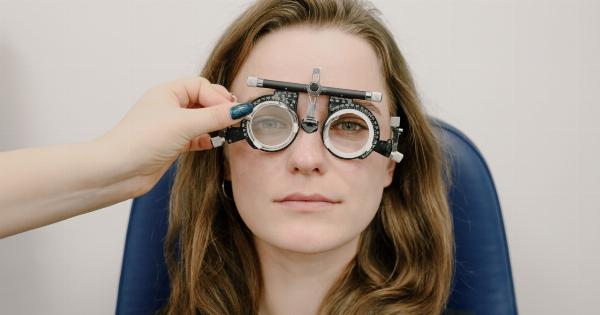POEDIN, a leading mental health care provider in the US, faces an uncertain future following the announcement of the sale of three key psychiatric facilities by HRIP, a private equity firm with a significant stake in the company.
This move has triggered a wave of concern among stakeholders, including patients, employees, and shareholders, who fear that the sell-off will impact the quality of care, the availability of services, and the company’s financial stability. In this article, we will examine the implications of the sale, the reasons behind it, and the possible outcomes for POEDIN and its stakeholders.
The Three Facilities up for Sale
The three psychiatric facilities being sold by HRIP are:.
- The Bellwood Addiction Treatment Center in Virginia
- The Mills-Peninsula Behavioral Health Center in California
- The Western Pennsylvania Hospital Psychiatric Care Unit
These facilities provide a range of mental health and substance abuse services, including inpatient and outpatient treatment, behavioral therapy, and medication-assisted treatment.
They are considered vital components of POEDIN’s care network, serving thousands of patients every year.
The Reasons Behind the Sale
The announcement of the sale came as a surprise to many, as POEDIN has been performing well financially and has seen an increase in demand for mental health services in recent years.
However, it appears that HRIP’s decision to sell the facilities is motivated by a desire to reduce debt and focus on other aspects of its business.
The private equity firm acquired a majority stake in POEDIN in 2018 and has since invested heavily in expanding the company’s operations.
However, the COVID-19 pandemic has had a significant impact on the healthcare industry, causing financial strain and disrupting service delivery. HRIP may see the sale of the three facilities as a way to generate liquidity and reduce risk.
The Impact of the Sale on Patients
The sale of the three facilities could have a significant impact on patients who rely on these services for their mental health and substance abuse treatment.
The loss of these facilities may lead to longer wait times for treatment, reduced availability of specialized care, and limited access to medication-assisted treatment. It may also disrupt continuity of care for patients who have ongoing treatment needs.
POEDIN has assured patients that it will do everything possible to ensure a smooth transition and continuity of care.
However, the sale may complicate efforts to maintain the quality and availability of services, particularly if the facilities are acquired by organizations that prioritize profit over patient care. Patients may need to seek treatment at other facilities, which could lead to increased costs and travel time.
The Impact of the Sale on Employees
Employees of the three facilities, including doctors, nurses, and support staff, may also be affected by the sale.
They may face uncertainty over their job security and working conditions, particularly if the facilities are acquired by new owners who have different management styles or cost-cutting measures.
POEDIN has stated that it will work with employees and their representatives to ensure a fair and satisfactory transition, which may include reassignment to other facilities or severance packages.
However, the sale may also lead to a loss of valuable expertise and experience among the workforce, which could impact the quality of care delivered across the company.
The Impact of the Sale on Shareholders
Shareholders of POEDIN may also be affected by the sale, particularly if it leads to a decline in the company’s financial performance.
The loss of revenue from the three facilities could impact profitability and shareholder value, particularly if efforts to reduce costs or increase productivity prove insufficient.
However, the sale may also generate significant funds for the company, which could be reinvested in other aspects of its operations, such as technology, research, or marketing.
This could lead to increased revenue and profitability in the long run, which would benefit shareholders.
Possible Outcomes for POEDIN
The sale of the three facilities marks a significant turning point for POEDIN, which has been a leading provider of mental health and substance abuse services for decades.
The company may continue to thrive and grow, or it may struggle to adapt to the changes wrought by the sale and the broader challenges facing the healthcare industry.
If POEDIN successfully navigates this period of uncertainty, it could emerge as a more streamlined and focused organization, with a renewed commitment to patient care and innovation.
It may also find new opportunities to expand its operations, either through organic growth or acquisitions of other providers.
However, if the company fails to adapt, it may face declining demand for its services, increased competition from other providers, and further financial challenges.
It may need to consider restructuring or divesting other assets in order to remain viable.
Conclusion
The sale of the three psychiatric facilities by HRIP has thrown POEDIN’s future into uncertainty, raising concerns about the quality of care, the availability of services, and the company’s financial stability.
While the sale marks a significant challenge for the company, it also represents an opportunity for it to refocus and reposition itself for future growth and success. The coming months and years will determine whether POEDIN is able to adapt and thrive, or whether it succumbs to the numerous challenges facing the healthcare industry.































